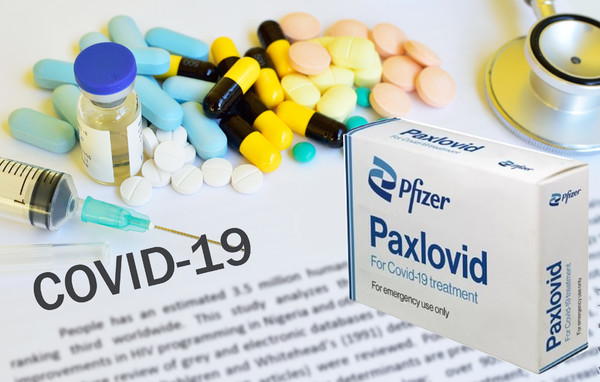Anticipations are growing that an oral Covid-19 drug, which won Korean approval on Monday, could be a “game-changer” to fight the pandemic.
The government also said that the Covid-19 pill would help maintain the healthcare and quarantine system.
However, experts said that to prescribe and administer the oral treatments quickly and avoid a collapse of the health system, the government should first overhaul the medical system.
On Monday, the Ministry of Food and Drug Safety authorized emergency use of Pfizer’s oral Covid-19 drug Paxlovid. The product is expected to arrive in mid-January in Korea.
The MFDS also reviewed MSD’s oral Covid-19 drug Molnupiravir for emergency use but did not announce any conclusion.

The government has procured Covid-19 pills for 604,000 Covid-19 patients – 362,000 with Pfizer’s Paxlovid and 242,000 with MSD’s Molnupiravir. It was also pushing to raise the stock to over 1 million, it said.
Lee Sang-won, head of epidemiological investigation analysis at the Korea Disease Control and Prevention Agency (KDCA), said Pfizer’s Covid-19 pill should be administered according to the MFDS’ approval conditions and a doctor’s prescription.
He added that the government would soon release detailed guidelines for taking the pill after consultation with the medical community.
“An active use of a homegrown antibody treatment and introduction of an oral treatment will contribute to a reduction in hospitalization and death of high risk, mild, and moderate patients, and maintenance of the health and quarantine system,” Lee said. “We will do our best to provide Covid-19 treatments for patients getting treated at home.”
However, to use oral Covid-19 drugs effectively in clinical care, the medical system should be overhauled first, experts said.
The current system makes it difficult to identify the severity of Covid-19 quickly and administer an oral treatment at the right time, they said.
Pfizer’s Paxlovid should be given within five days after the onset of Covid-19 symptoms.
“When daily caseloads exceeded 7,000, it used to take several days to assign home care or hospital beds due to the shortage of epidemiologists,” said Lee Jae-gap, a professor of infectious disease at Hallym University Kangnam Sacred Heart Hospital.
If daily cases surpass 10,000, I don’t know if the authorities can triage high-risk groups and complete the diagnosis and drug administration within five days after the onset of symptoms, he added.
He noted that the task would be daunting if the nation had full outpatient care capacity.
According to Lee, when seasonal influenza gets severe, doctors prescribe Tamiflu for about 3 million people for three months. “In these times, all flu patients at pediatrics, internal medicine, and otolaryngology across the nation had to wait for one to two hours to see a doctor and get a prescription, and this is how we managed it.”
Lee warned that the current pandemic situation would not be controlled only by operating isolated screening centers and respiratory clinics.
“Most clinics should be able to care for Covid-19 outpatients, and Covid-19 treatment at home should be done efficiently,” he said. “Unless we overhaul the medical system, we cannot administer oral Covid-19 drugs effectively.”
At a YouTube show, Corona Fighters Live, run by The Korean Doctors’ Weekly, a sister paper of Korea Biomedical Review, professor Jung Jae-hun of preventive medicine at Gachon University College of Medicine, said the number of Covid-19 patients would not decrease in the long-term.
“The authorities should predict the scale of the pandemic by monitoring Covid-19 vaccination rates and procurement of oral treatments, and adjust quarantine measures accordingly,” he said.
The government should also allow medical institutions to maintain Covid-19 beds at a certain level and use the beds flexibly depending on situations, he also noted.
In the initial stage, the government should come up with a scenario of using oral Covid-19 treatments for priority groups such as high-risk groups among the unvaccinated, Jung said.
“Then, the unvaccinated senior groups in their 70s and 80s or those with underlying diseases should get the oral treatments. If the supply becomes more sufficient, the criteria can be eased,” he said. “Oral treatments should be used in that order so that they can yield the most effective results.”

